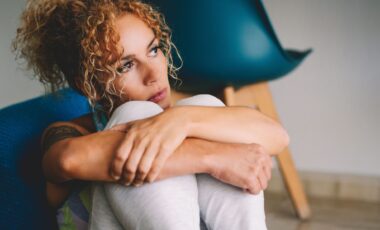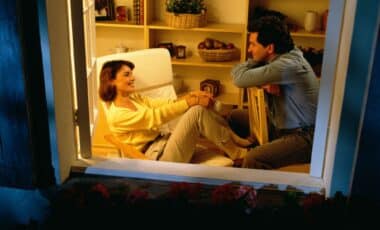
 Chef Chudaree Debhakam
Chef Chudaree Debhakam
Relaxed in her grandmother’s historic house, now the restaurant Baan Tepa, Chudaree Debhakam—more popularly known as chef Tam—says, “Yup, believe it or not I was a real sports billy. I went to Millfield school in the UK for sixth form specifically to further my studies in sports and sports science, because that was what I was really into.” While at the school, which is known for its sporting prowess, Tam played basketball and football, swam and took part in track and field events. “I got into nutrition and monitoring my dietary habits, counting calories and such and it interested me enough to study nutrition at Nottingham University. I graduated in 2013.”
But how did the cooking come about? “It started with food sciences,” says the chef. “A lot of food science at the molecular level and how nutrition works is based on how food is prepared. At university we would go into the lab and basically cook up dishes. I was also into culinary shows and would watch to learn about recipes and cooking techniques. Trying them all out at university took up more of my time than my actual studies did,” Tam laughs. After university, she knew that a career in a nutrition lab wasn’t what she wanted. She just wanted to cook.
On her return to Bangkok Tam secured an internship at Water Library under chef Mirco Keller, which eventually led to a job. “I learned an important thing at the restaurant…mainly that my basic cooking knowledge and techniques just weren’t there,” Tam admits. So she took herself off to New York for a course at the International Culinary Center. “What started as an intended six-month visit turned into a three-year stint abroad though,” she laughs. “I was doing the farm-to-table course, working and interning at the same time and then afterwards I moved upstate to Blue Hill at Stone Barns to work for chef Dan Barber.”
When she got back to Thailand in 2017 the budding chef says she felt “super burned out from working in the intense kitchen environment” and so took a break. “I was ready to explore going into farming and agriculture. At Blue Hill we had to farm in the morning before going into the kitchen. We had to understand farming practices and I was really into it because I found it very relaxing.” She began her own green-fingered quest in her backyard, tearing down the old garden to grow vegetables. “At the same time I applied to compete on Top Chef, the TV culinary competition. Shows like these were something I used to watch growing up and when I was starting out so this was a great opportunity. After I won the competition everything changed,” she laughs.
For two years Tam travelled the world. “After winning the show I went to do this project called WastED with Dan Barber in London. It was all about regenerating dishes from food waste and more. I loved it and brought the philosophy back and began doing my own pop-ups in Bangkok.” Then in 2020 Tam opened Baan Tepa, a restaurant driven by authenticity and sustainability. With the Covid-19 situation going on, the 28-year-old chef is taking everything day by day. “In addition to running our delivery brand, Tam Sung, and our garden cafe, last month we re-opened the main restaurant to guests. I have high hopes for it to be somewhere folk from all over come and visit, a centre of sustainable cooking and good food,” she smiles.
 Organic farmer Kunyakorn Bunnag
Organic farmer Kunyakorn Bunnag
A contemporary of chef Tam’s who did take the agricultural plunge is Kunyakorn Bunnag. Known as Kun, she says she always had an inclination to be a photographer, which is why after graduating from Mater Dei School she studied photography at Chulalongkorn University. “At first I dreamed of becoming an artist,” she laughs, “but that faded over time and now it’s become more of a hobby. I visit museums to look at exhibitions and art and take photographs once in a while.”
Almost immediately after graduating from university in 2016 Kun dropped pretentions of being an artist and much to everyone’s surprise announced she was going into farming. “My parents moved to Hua Hin and I wanted to follow them there. As a child I spent holidays at the resort town and I always loved the place. Being able to work outdoors really appealed and I thought that maybe I could set up a business,” Kun explains. But first, the question was what to do? Pulling ideas from her family, particularly her cousin, she wanted something oriented towards nature, organic produce and health. “So, after much thought we decided to start a farm,” she chuckles.
Behind the rationale was a thorough look at Hua Hin. “I surveyed the town and saw restaurants and hotels, all businesses we could make our own living from by supplying very particular products.” Another catalyst was her sick mother, as Kun explains. “She has a very delicate constitution and I wanted to grow foods that wouldn’t make her sick in the future.”
After finding a seven-rai plot of land for the farm, the real difficulties began. “Well, we didn’t have a clue what to do,” says Kun candidly, “so we hired a consultant from Thailand Young Farmers, a group that does everything the organic way. The consultant drafted a 10-step plan for us and it told us everything we needed to know to get started.” That was just the beginning of the hard work. “We were warned about our plants getting disease or being infested by insects. There were problems every day, both before and after the harvest. We didn’t know how to put a price on what we grew. Organic produce is usually more expensive, often double the price of normal produce, so even when chefs endorsed our vegetables their purchasing departments raised an eyebrow.”
 Produce growing at Geb Farm
Produce growing at Geb Farm
Being able to work outdoors really appealed and I thought that maybe I could set up a business.
— Kunyakorn Bunnag
As for spreading the word about Geb Farm produce, Kun did the rounds with a vegetable basket in hand, knocking on restaurant doors and giving out samples with a contact card. In fact she’s been hands-on from the start, doing her share in the fields, during planting and harvest times. “I even make my own organic fertiliser. It involves quite a bit of scientific experimentation,” laughs the 27-year-old. This initial success has led to Kun opening her own restaurant called Veggie’s Bed and setting up another farm at Kamphaeng Saen called Organic Mind by Geb Farm, which also supplies Bangkok outlets.
Contemplating her venture into the food and beverage industry, Kun says that operating a farm and restaurant at the same time was always part of the plan. “Whatever farm produce is left unsold we give to the restaurant so that it isn’t wasted. It’s pretty seasonal too. I think mulberries will grow well over the next few weeks so we will be making lots of jam soon.” She is also looking forward to trying her hand at new produce. “Perhaps in a year or two I will have a go at growing cacao beans—there aren’t enough chocolate bars in Thailand,” she giggles.
 Airline pilot Captain Pasaree Kangwanpong
Airline pilot Captain Pasaree Kangwanpong
I’m not afraid of flying, but I’m actually terrified of heights!
— Pasaree Kangwanpong
Another career-driven lady who started out in the sweet life but took a radical turn is Pasaree Kangwanpong, or Tuang, who has over 13 years of experience in the cockpit as a commercial airline pilot. It might not have been so because she started out as a model. “I was in high school in Chiang Mai and an agent scouted me. I went on to major in computer science at Chiang Mai University but still found time to model, although overnight bus trips to Bangkok for gigs were exhausting,” she laughs. Of her degree she admits to thinking it was useless once she graduated (“I should have studied biology”) although she admits it had applications when she started to learn to fly.
The change in career didn’t come about immediately though. Looking for something more fulfilling to do long-term, Tuang recalled a career guidance counsellor at school telling her about the role of air traffic controllers. “I even did a bit of research on it at university but there were no courses related to aviation available. I’d always enjoyed planes and flying and so when modelling no longer appealed I talked to one of my uncles who held a senior position at Aero Thai,” she explains, referring to Thailand’s centre for air traffic control and aeronautical communications. “He suggested becoming a pilot instead of an air traffic controller, which involves looking at screens all day.” So in 2004 at the age of 24, she began private flying lessons.
Piloting a Cessna 152 for the first time was very exciting, Tuang admits. “It felt so good to be in control rather than sitting there as a passenger. There were so many things to figure out. I’m not afraid of flying, but I’m actually terrified of heights!” she laughs. After attaining her private pilot’s license, Tuang went on to flight school to try for her commercial license. “Once I had that I went for a job at Bangkok Airways and was accepted. I was lucky because it was the only airline I applied to.”
Tuang flew as a first officer/co-pilot for six years and was promoted to captain in her early 30s. Now 40, she has commanded the flight deck for seven years. “Captaining is a lot harder than co-piloting,” she admits. “As a co-pilot basically all you have to do is what the captain tells you but it is the captain who has all the stress and responsibility for decision-making.” Recalling her first year as a co-pilot, on one occasion a particular scary technical fault involving an aircraft’s sensors occurred, requiring the captain to turn off one of the jet’s two engines. Tuang chuckles, “There was a lot of theorising about whether we should turn the engine on again. The procedure for dealing with the problem was to turn it off and leave it off but we decided to re-ignite it and thankfully everything returned to normal.”
Currently grounded due to the Covid-19 situation, the pilot’s schedule is kept very limited. “I spend my time at home, tending to my garden, studying and working on projects the airline assigns me to. Outside of work I also help out with my mother’s cafe in Hua Hin, called Coffee Next Door. While I’m unable to fly I would also like to head back to Chiang Mai and be properly home for a while. It has been a long time.”
 Police Captain Nuntinee Kleadmanee
Police Captain Nuntinee Kleadmanee
Speaking of captains, another woman who has achieved that rank is 28-year-old policewoman Nuntinee Kleadmanee. Nae, as she is known, had original designs on becoming a diplomat, “Probably because I studied at Ruamrudee International where many of my friends’ parents were diplomats. Representing Thailand abroad seemed so prestigious to me.” So after graduating from high school she enrolled at Thammasat University to study international relations.
“Back then I was waiting for the Ministry of Foreign Affairs to open its diplomat examinations held annually, so I had a lot of free time on my hands,” Nae says. “I figured that while I was waiting I could take a few months off to go backpacking, something I probably won’t have the chance to do later. So off I went and it was while I was away that I first considered joining the police.” Coming from a family of police officers, she was well placed to sound out relations and friends of her father, some of whom told her about an opening in the Royal Thai Police that might lead to a role with Interpol Thailand. “At first I was skeptical about it but eventually decided to try for the interviews with Interpol and managed to get in. The scope of work was similar to that at the Ministry of Foreign Affairs, but here there were cases to solve, investigations to get stuck into and operations in cooperation with famous law enforcement agencies like the FBI and Scotland Yard. It was fun but challenging.”
There were physical hardships as well. “Before qualifying as a police officer you have to train rigorously at the Police Cadet Academy for four months. There were times when I wanted out but persevered. The important thing is that I began to understand the way the force worked, particularly its bureaucratic structure and hierarchy.” Being an international school student, her views sometimes clashed with those of the higher-ups, so Nae learned to adapt and was successfully inducted as an officer in 2015 with the rank of sub-lieutenant (or sub-inspector).
Her first year on the job was an eye-opener. “I was asked to be the interpreter for the person accused of being the Ratchaprasong bomber. It was my first big job and I was very stressed. We went through the crime scene and retraced the steps of the accused. There was a lot of pressure in interpreting because people from the international media were scrutinising us,” she explains.
After two years with Interpol Nae took leave to study in the Netherlands for a master’s degree in crisis and security management. She returned and rejoined the Thai Interpol team for another couple of years before transferring to the immigration division, where she currently works. Now a police captain, she admits that most of her daily challenges relate to being a woman in a career that is heavily gender biased. “Often at work I feel I have to prove to my superiors that I have capabilities equal to any of my male colleagues. It’s a challenge most women in the force face,” she says.
As for the future, Nae says she would like to be part of the UN police force and work on fighting crimes against women and children. In her free time the Miss Universe Thailand 2019 participant (she placed 20th out of 60 contestants) paints to relax but also loves keeping her shooting skills up on the range, so you don’t want to end up in her sights.
See also: 10 Business Women Shaping Thailand Right Now






